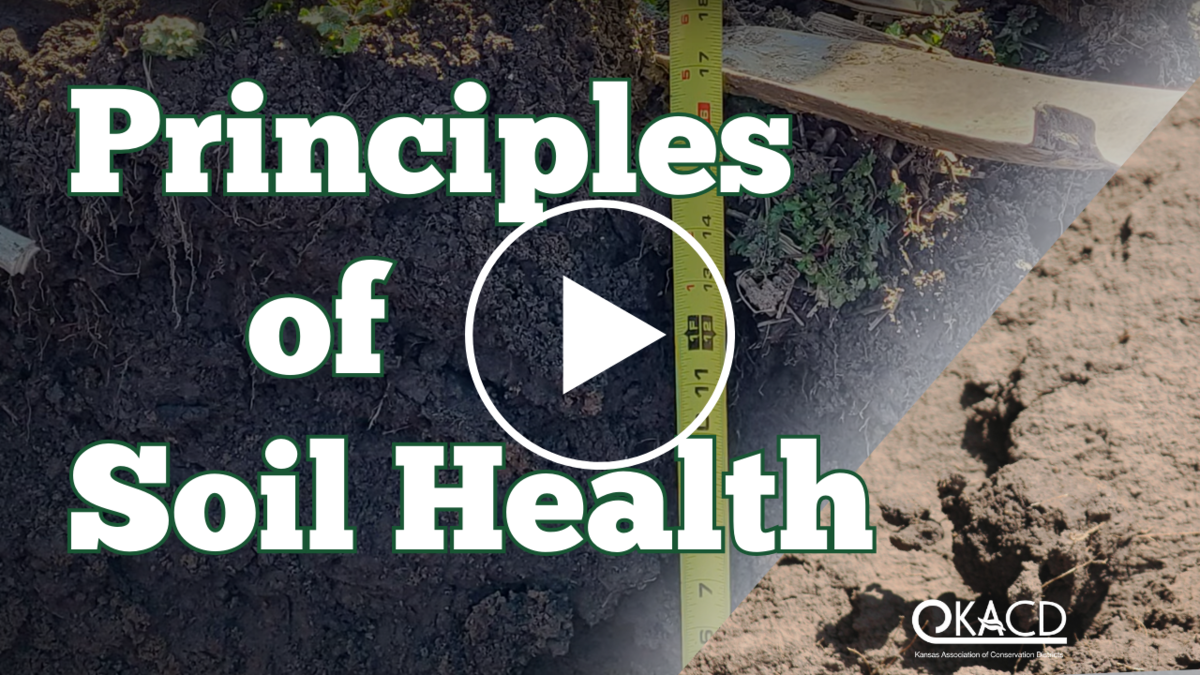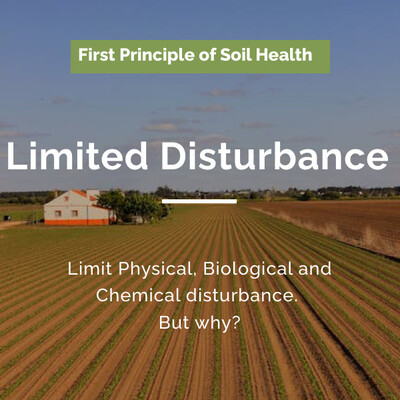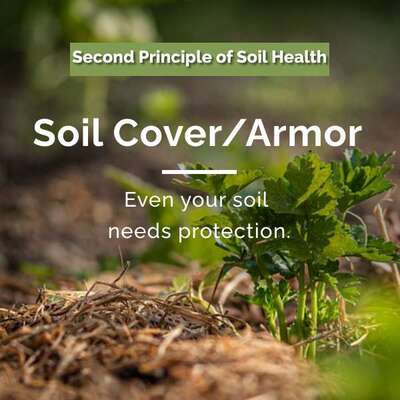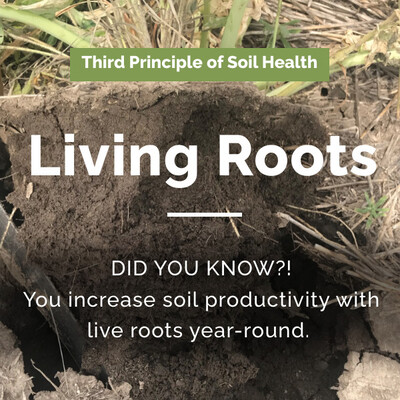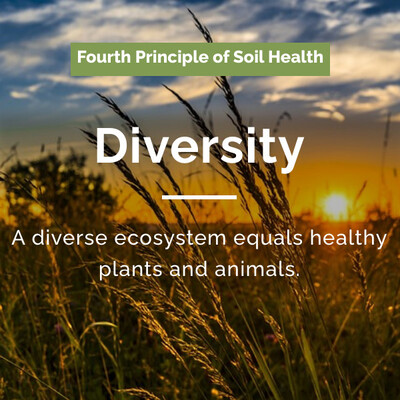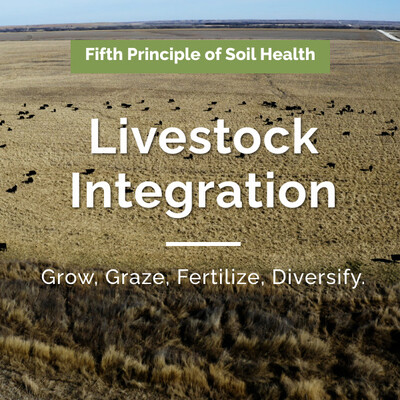| Farmers for Soil Health |
Soil Health
KACD is committed to promoting soil health across the state of Kansas through outreach and education.
Soil health is the "the continued capacity of soil to function as a vital living ecosystem that sustains plants, animals and humans." (USDA-NRCS).
Improving soil health increases the soil's organic matter and improves microbial activity. This results in sequestering more carbon, increasing water infiltration, improving wildlife and pollintor habitat.
KACD and our local districts provide:
- Field days
- Host farmer-to-farmer conversations
- Educational materials
- Various demonstration tools, such as rainfall simulator, stream trailer, and soil health trailer
Principles of Soil Health
Additional resources and opportunities for education can be found at Kansas Soil Health Alliance. Kansas Soil Health Alliance is a farmer and rancher-led organization formed to provide practical information, resources and events on soil improvements/soil health that can be used on farms and ranches.
Soil Health Practices
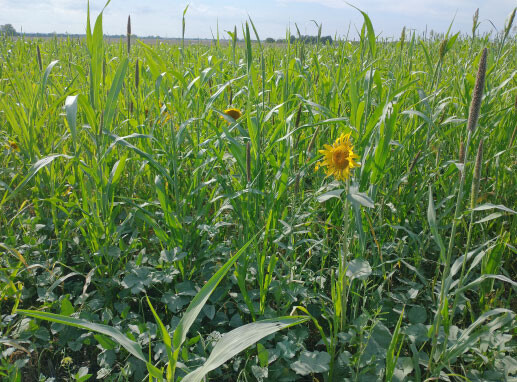 Soil Health practices are proven to increase the organic content in topsoils, which in turn reduces the need for frequent applications of fertilizers and mitigates the effects of drought, excessive heat and extreme weather patterns on crops.
Soil Health practices are proven to increase the organic content in topsoils, which in turn reduces the need for frequent applications of fertilizers and mitigates the effects of drought, excessive heat and extreme weather patterns on crops.
Specifically, cover crops reduce weed pressure, soil erosion and nutrient runoff, and can provide grazing for livestock. A diverse crop rotation reduces pest and weed pressure, too, as well as improving soil workability and water availability. Like cover crops and no-till, strip-till or other minimum-till systems, crop rotations effectively recycle plant nutrients in the soil, reducing the need for fertilizers and insecticides and saving farmers money. No-till, strip-till or other minimum till systems also lower fuel costs – since no-till equipment requires less horsepower – and can save farmers time – because conventional tilling requires multiple passes across a field, while no-till only requires one trip to plant a crop.
Financial Resources for Soil Health
Financial resources are available from a variety of resources and partnerships. There are many programs and initiatives available. KACD's options include: NRCS, Kansas Dept. of Agriculture - Division of Conservation, ADM Climate Smart Initiative, Ecosystem Services Market Consortium, Kansas WRAPS

